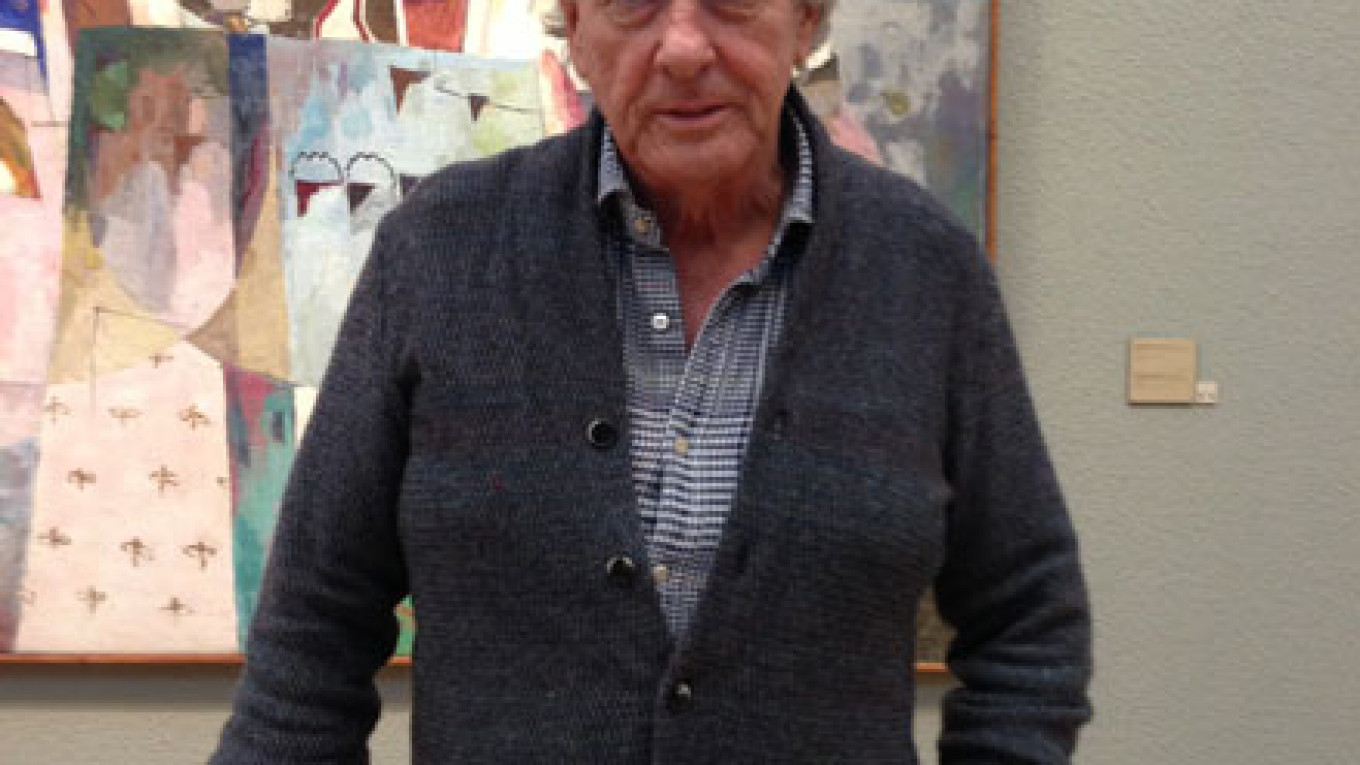At age 75, Paul Verhoeven has certainly seen it all. Speaking at the State Tretyakov Gallery ahead of his public Q-and-A session, the Dutch director says that what is lost in American cinema today is the focus on people and on how they relate and react to each other in different situations.
"I don't feel many projects I am offered are worth doing, especially if they are remakes or involve superheroes," says the director, who left an indelible mark on '90s pop culture with films such as Total Recall, Robocop, Starship Troopers and Basic Instinct.
Even his biggest blockbusters had a human element and deep spiritual meaning which is often lost in contemporary popular cinema. "I am not a religious person myself, but this does not mean I don't have a feeling for religious topics," he explains.
The creator of some of the most iconic films of the '90s deplores the lack of a human element in today's Hollywood blockbusters.
His earliest films, Turkish Delight (1973) and Soldier of Orange (1977), are already a significant part of Dutch cinematic history, having been voted first and second-best Dutch films ever at the 1999 Netherlands Film Festival. They were extremely liberal and reflected the political and social sentiment of the Netherlands at that time.
He explains that it proved difficult for him to receive state funding for his movies, as state-appointed film commissions that distributed grants constantly rejected his scripts for being too frivolous and not having any social relevance, prompting his move to Hollywood, where he would remain for the next 20 years.
It was there, where he established his reputation as a controversial figure known for his trademark violence, sexual content and explicitness in his films, which he acknowledges and delights in.
"The body count in Total Recall was the highest at that time for films … and Showgirls made the producers a lot of money in the home-rental market," he said, referring to the Golden Raspberry-winning 1995 film, for which he won the Worst Director and Worst Picture awards. He was even the first prizewinner to collect the award in person.
Returning to Holland, his next move was to make yet another canonical Dutch film, Black Book: "the shadow side of Soldier of Orange." It is a fictional World War II story based on three women who were involved with the resistance. The public voted the film as the best Dutch film ever in 2008.
"It was a movie I wanted to make since 1982 with material that we had already gathered while preparing Soldier of Orange, showing that resistance was not all that straightforward, and that things were actually very different than what people thought."
He speaks at length about a recent project of his, the book Jesus of Nazareth, published in 2008, based on research he had done for an unmade film about Jesus. For the past 30 years, he has had an ongoing interest in the historical Jesus, as opposed to the divine figure, particularly on what he wanted and what he achieved.
This obsession began when he read about a society of scholars known as the Jesus Seminar, based in Santa Rosa, California, in a newspaper in Holland in 1985. He participated in their seminars twice a year for 20 years and tried repeatedly to get funding for a film, but failed. "So the resulting text seems very much like illustrations of scenes as I would see it in a movie," Verhoeven said.
His last years in Hollywood were a period of rejection with the director finding it hard to find funding for his projects, though he speaks about this time fondly and says he hopes to return to do more. These days, he is preoccupied with a possible project with writer and director Nicholas Kazan, the son of the late acclaimed director Elia Kazan. "With this project, I think I can do something very well for the first time in years," he says, without disclosing more details.
His obsession with power, politics and dictatorship is once again brought up when he speaks about his favorite Russian movies. Despite the connections between his science-fiction works and Tarkovsky's Solaris, he says that he has never actually watched many of the Soviet director's films and "never got into it, despite trying many times."
He picks The Cranes are Flying, Mikhail Kalazatov's Palme d'Or winning 1957 Soviet film about World War II, and Sergei Eisenstein's two-part historical epic about the great tsar made in 1944, Ivan the Terrible, which he describes as "such a beautiful movie, really theatrical," a surprise to me, as it often features in some lists of the worst movies of all time that his own Showgirls is perennially listed in.
Knowing Verhoeven and his cinematic output, his pick should not be surprising and with movies like this as one of his all-time favorites, one can only hope that his film about Jesus eventually gets the funding it needs to be made.
Contact the author at artsreporter@imedia.ru
A Message from The Moscow Times:
Dear readers,
We are facing unprecedented challenges. Russia's Prosecutor General's Office has designated The Moscow Times as an "undesirable" organization, criminalizing our work and putting our staff at risk of prosecution. This follows our earlier unjust labeling as a "foreign agent."
These actions are direct attempts to silence independent journalism in Russia. The authorities claim our work "discredits the decisions of the Russian leadership." We see things differently: we strive to provide accurate, unbiased reporting on Russia.
We, the journalists of The Moscow Times, refuse to be silenced. But to continue our work, we need your help.
Your support, no matter how small, makes a world of difference. If you can, please support us monthly starting from just $2. It's quick to set up, and every contribution makes a significant impact.
By supporting The Moscow Times, you're defending open, independent journalism in the face of repression. Thank you for standing with us.
Remind me later.






